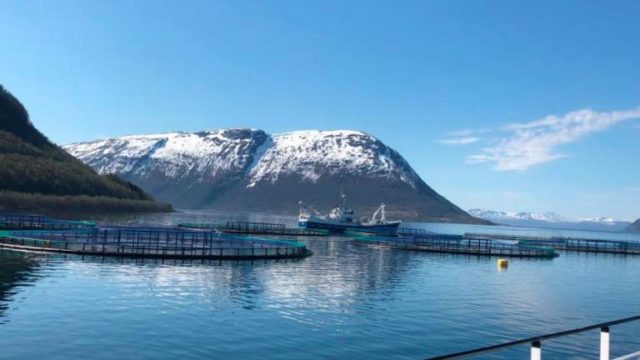Norway\’s \’salmon tax\’ dead in the water

NORWAY’S Labour Party has come out against imposing a 40 per cent flat rate tax – dubbed the salmon tax – on the country’s fish farming companies.
Instead it wants to see a tax based on output or on how much land and fjord water a fish farm takes up, with most of the revenues going to coastal communities.
Labour’s decision is interesting because it is the largest opposition party and, if it wins power at the next general election, it will play a big role in formulating fiscal policy, even if it has to go into coalition with small, more radical left wing parties.
The current Conservative administration is now a minority government after falling out with its former coalition partner, the Progressive Party in January.
But Labour doesn’t want to wait for an election, demanding that its proposals are debated as a matter of urgency by the Storting, Norway’s parliament.
The current Conservative coalition has yet to come to a decision, but whatever the outcome, Labour’s new stance means that the government appointed committee’s flat rate proposal, announced in November, is virtually dead in the water.
The Labour Party said it had come to what is seen as a surprise decision after careful consideration. But whether it pleases the fish farming companies – and entrepreneurs such as Ola Braanaas, head of Firda Seafood, who threatened to sell up if the flat rate plan went through – will depend on the size of Labour’s tax rates. The industry has yet to comment.
The party’s fisheries spokeswoman, Cecilie Myrseth, said the problem with the flat rate plan is that all the money goes straight to the Treasury.
It would rather introduce an area or production tax that will directly benefit people living in and around fish farming sites.
Meanwhile, Professor Karen Helene Ulltveit-Moe, who chaired the tax committee, criticised Labour’s alternative, saying it would result in a large loss in revenue to the government.
‘We proposed a 40 per cent because that is what we have for the power industry,’ she said. ‘We believe that there is no reason why we should not treat these two natural resources in the same way.
‘Ideally, the tax rate should be equal, but the most important thing is to land on a surplus based, basic interest tax for the aquaculture industry.’

